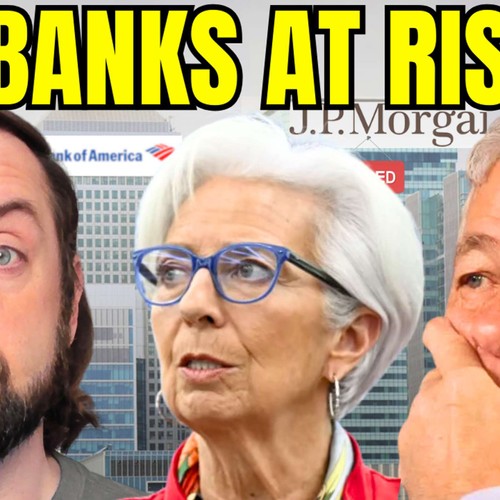
 Eurodollar University
Eurodollar University HOLY SH*T: Something Big Is Happening To European Banks
Jan 8, 2025
European banks are taking a defensive stance, focusing on safer government bonds instead of lending, raising concerns about financial stability. The euro's decline is linked to inflation and rising consumer prices, echoing past economic crises. Long-term interest rates are surging, especially in Germany, compounded by political and labor market challenges in France and Switzerland. As banks opt for safety, the broader implications for economic growth and global supply chains become increasingly critical.
Chapters
Transcript
Episode notes
